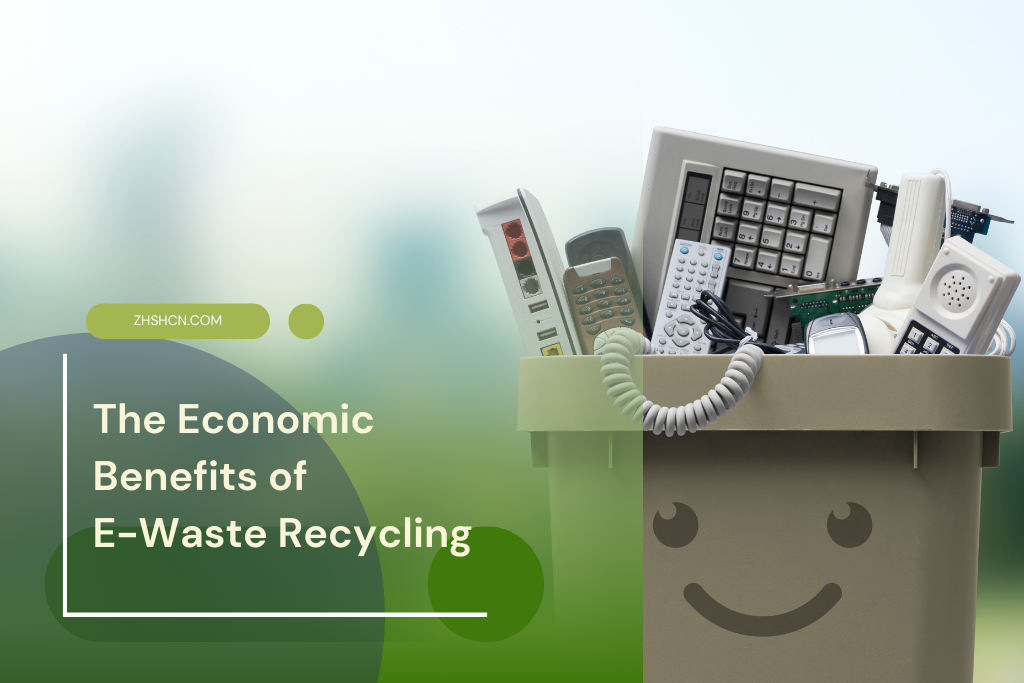Electronic waste, or e-waste, has become a growing concern in the age of rapidly advancing technology. Beyond the environmental implications, many often overlook the significant economic potentials embedded within these discarded devices. How E-Waste Recycling Boosts Economic Growth is a testament to this fact. The Economic Benefits of E-Waste Recycling are manifold, touching various sectors of the economy and fostering sustainable growth.
Electronic waste, or e-waste, has become a growing concern in the age of rapidly advancing technology. Beyond the environmental implications, many often overlook the significant economic potential embedded within these discarded devices. How E-Waste Recycling Boosts Economic Growth is a testament to this fact. The Economic Benefits of E-Waste Recycling are manifold, touching various sectors of the economy and fostering sustainable growth.
Key Takeaways
- E-waste consists of discarded electronic devices.
- Recycling e-waste can bring significant economic gains.
- Proper management of e-waste ensures sustainable growth and job creation.
- Mismanagement of e-waste has adverse economic implications.
- Society benefits both economically and socially from efficient e-waste recycling.
What is E-Waste?
E-waste encompasses a wide array of discarded electronic devices. From obsolete mobile phones and computers to broken household appliances, they all form part of the e-waste stream.
How Does E-Waste Recycling Affect the Economy?
Recycling e-waste presents a double-edged sword for the economy: it prevents the economic drain caused by e-waste mismanagement and simultaneously taps into the economic benefits of reusing precious metals and materials.
| Materials Recovered | Economic Value (approximate) |
|---|---|
| Gold | $15 per gram |
| Silver | $0.50 per gram |
| Copper | $6 per kilogram |
Direct Economic Benefits of E-Waste Recycling
Job Creation
One of the economic benefits of e-waste recycling is job creation. The recycling process, from collection to processing, requires a larger workforce than simple disposal.
Recovery of Valuable Materials
Electronics often contain precious metals like gold, silver, and copper. Recycling these metals can be much cheaper than traditional mining and reduces the demand for new mining projects.
Boost in Local Economies
Local recycling facilities can stimulate local economies by providing jobs and creating a market for recycled goods.
Social and Economic Impacts of E-Waste Recycling
Health Cost Savings
Recycling e-waste reduces the release of toxic substances into the environment. This decrease results in fewer health issues among the population, saving significant medical costs.
Educational Opportunities
Awareness campaigns on why it is important to recycle e-waste can lead to educational programs and training sessions, equipping individuals with valuable skills.
Economic Impacts of E-Waste Mismanagement
Improper handling and disposal of e-waste can result in significant economic setbacks. These can arise from:
- Health treatments due to exposure to toxic substances.
- Loss of valuable materials.
- Pollution control and mitigation expenses.
Conclusion
The benefits of e-waste recycling extend beyond the environment. From creating jobs to recovering valuable metals, e-waste recycling offers multiple avenues for economic growth. By understanding and tapping into these benefits, societies can ensure both sustainable growth and environmental conservation.

Frequently Asked Questions
1. What constitutes e-waste?
E-waste refers to discarded electronic or electrical devices and components.
2. Why is recycling e-waste economically beneficial?
Recycling e-waste leads to job creation, recovery of valuable materials, and savings on health and environmental mitigation costs.
3. How can e-waste mismanagement affect the economy?
Mismanagement of e-waste can lead to loss of valuable resources, increased health treatment costs, and expenses related to pollution control.
4. What are the social impacts of e-waste recycling?
The social benefits include better public health, educational opportunities, and enhanced community awareness about sustainable practices.
